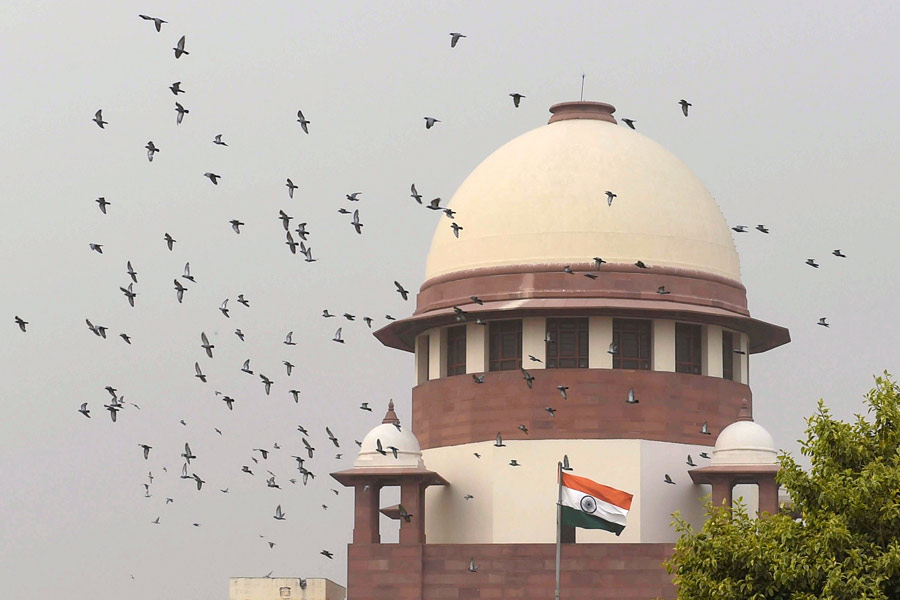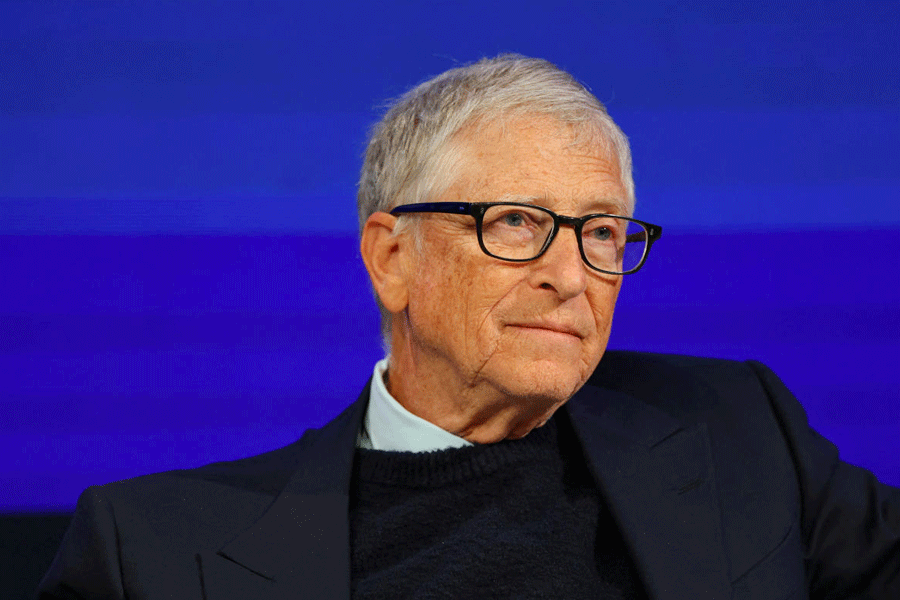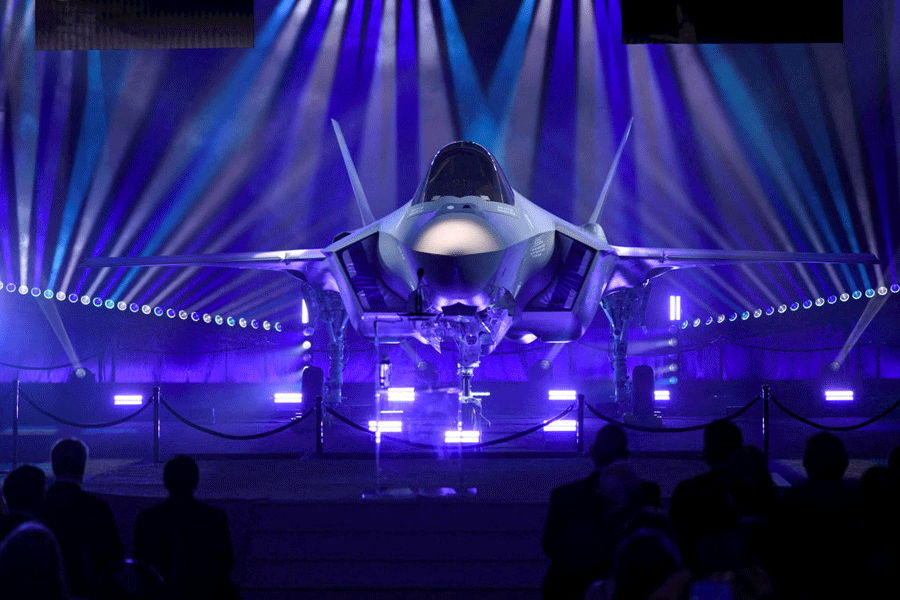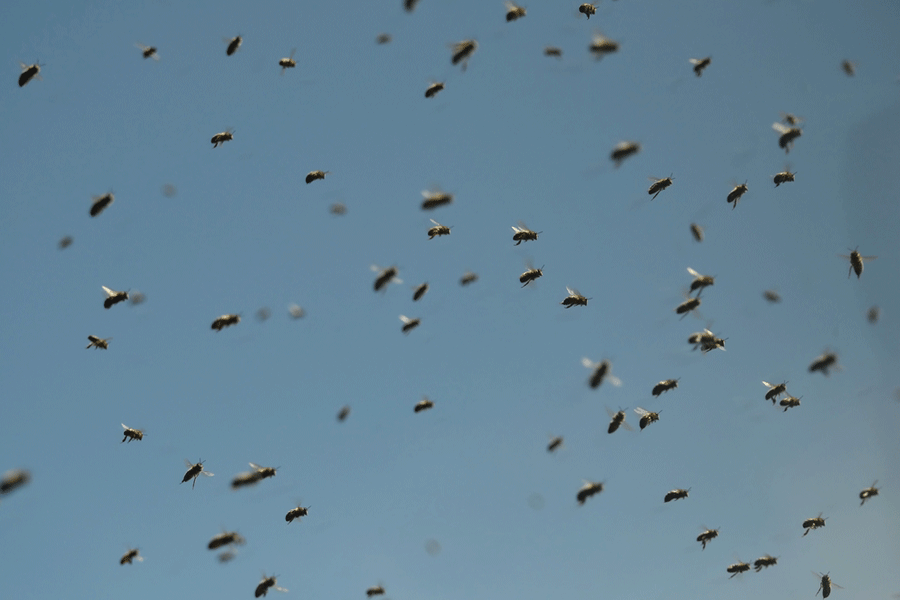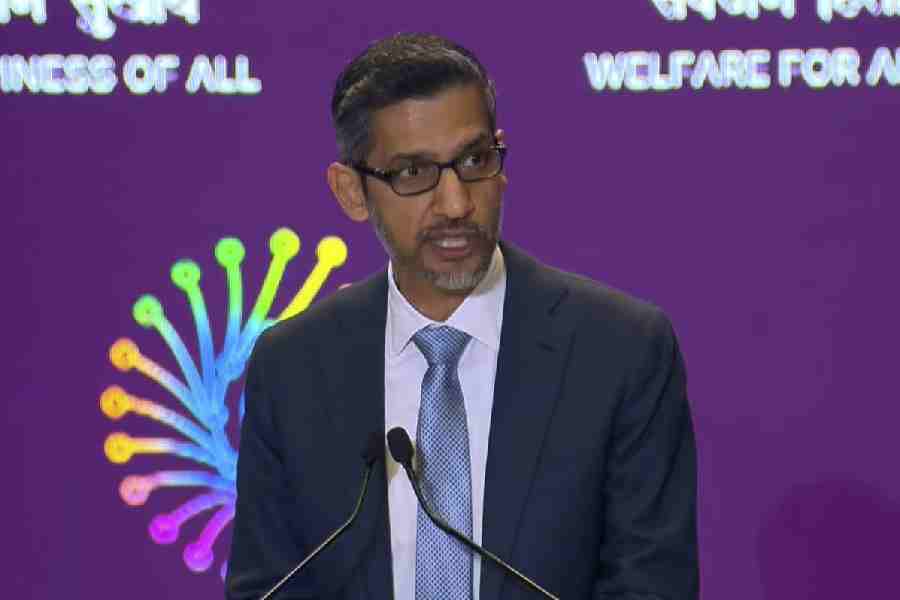 |
It’s tough to get the man’s attention; just too many are vying for it at the moment. He doesn’t carry a mobile phone and those who do on his behalf are still too obsessed with the business of preserving the Prachanda myth and mystique — make five calls and they’ll report him in five far-flung locations at the same time. Maybe Kaski. Maybe Chhitwan. Maybe Nepalgunj. Maybe someplace else... who knows where the ghost is walking today.
So here I am, driven more by instinct than by information, testing my chances in a place where Nepal’s Maoist leader Pushpa Kamal Dahal, or Prachanda, the fierce one, could be. Pharping is one of his two chosen constituencies, and easily the more approachable one. The other is Rolpa in the remote north-western hills; no roads go there, only Maoists. But Pharping is a stroll. Up a wooded hill strip that climbs steeply off Kathmandu’s southern fringe and turns, quite suddenly, into a spectacular viewing gallery on the valley.
There’s a battle-fatigued, baseball-capped guy blaring instructions on a megaphone to clustered villagers in Bhokre: “Line ma jaun, line ma jaun” — stand in line please! Prachanda’s probably coming. I’m in luck. I join the rippling line, an aspirant among the faithful, a glaring oddity, like a bad tooth in a fine set. In time, the outriders appear, a dozen motorcyclists with Maoist flags spiked into their handlebars. Behind them, several silver Scorpios and a Pajero, shiny black, its windows sunscreened. The myth is about to become man.
The line’s beginning to strain and shatter; and as he emerges, hair slicked back, buttoning the top of his herringbone tweed over his portly frame, it’s all pell-mell. A clamour of Lal Salaams and a hydra of hands reaching out. I extend mine and seek time. He passes on to the next one on offer. I run further down the line and extend my hand. Again the request, again just that glassy smile, no more.
Yesterday’s shadowy genie is all geniality, patiently obliging his felicitators — all the vermillion they can smear on him, all the garlands they can dunk, a frenzy of reds and yellows and oranges.
No good to me, though. I jump the line and rejoin it further down. “Third time,” he exclaims a little annoyed but still smiling, “Who are you? You are wasting my handshakes, this is not the time for you!” But third time lucky. He won’t have me ride with him in the Pajero — it’s packed with family and gunmen — but he’ll meet me over lunch. “But where?” Just follow me, he says, playing the underground baffler, you’ll know. Then he’s suddenly gone, gobbled by the crowd.
Lunch is at a roadside shack — Gaunle Chowka, literally village kitchen. Prachanda has been on the road six hours and Pharping has played Holi with him like it was going out of fashion. But he’s clearly loved each moment of the run-up to the April 10 election in Nepal. “You don’t get this in the underground,” he says, “It’s fantastic to be among the people who we’ve been fighting for, just fantastic. Elections were not on our plans, but this is something we have long waited for, to be among the people, to be not worried about being captured and jailed, to be yet carrying on our struggle.”
That quote is journalistic paraphrasing, of course; Prachanda speaks only faltering English, though he is totally unembarrassed about it. “I am not American, you know, I was brought up in a Nepali village.” You can’t miss the sardonic intent of tone; no ruse to barb the Americans is worth missing.
The man who would be President of this unborn republic is seated on the ground, padmasana style, awaiting a meal that would consist of rice, dal, fried potatoes, spinach and watery mutton curry.
“Sorry,” says one of his aides, “We could not take you in his car, he has been away from his family so long, they want to be with him all the time.” Prachanda is cuddling a niece, barely four; his wife is taking care of lunch. His guards — soldiers of the People’s Liberation Army — have to be fed too, and they must get the same as Prachanda on their tables.
Critics will tell you he loves his peg or two of Johnnie Walker Red Label — seeded low among Scotches but imbued with the virtue of being Red — in the evenings and wonder, rather unkindly, whether he is as egalitarian with it. Critics will also tell you, more pertinently, that the radical Maoist is no stranger to bourgeois, even feudal, ways — “Marxist by faith but a Brahmin by birth, after all.”
Birth was in the Annupurna region of Nepal. The student of agriculture — folklore has it that he even worked for a USAID project — was the general secretary in 1986 of the Communist Party of Nepal (Mashal), which later made way for the Communist Party of Nepal (Maoist).
Today, daughter Renu Dahal is a Maoist candidate for the Constituent Assembly in the proportional representation section. Son Prakash is awaiting induction to the Central Committee; he was part of a delegation Prachanda sent to Beijing last year.
But it’s not done to ask the 54-year-old leader those questions. He’ll probably ascribe all to the party, or simply get up and leave. And perhaps fairly. They pervert the discourse from the essential, and staggering, achievement of the man. He’s been two decades in the bush. He has kept a burgeoning, and often fractious, flock united and cohesive. He has made compromises and done flip-flops on the way — talking to King Gyanendra one time, then seeking his ouster — but that’s politics. He has kept course. He has led a left wing guerilla war that formidable forces, the United States and India included, wanted to put down. He has brought a 238-year-old monarchy to the brink of expiry, radicalised the conservative agenda of mainstream political parties and turned Nepal’s course towards being a republic.
Is the Rado on his wrist really worth focusing on? He gets indignant enough when asked if he has pitched his ambitions — a republic for Nepal and the Presidency for himself — too high and won’t renege if the results don’t match them. “Why will you not understand the difference between rhetoric and reality?”
His fists have been closed tight and his head is jerking, as if to emphasise his point. “I have only said we will not accept a conspiracy by the so-called king and other forces like the Americans and India to subvert the will of the people. I have never said I will not accept the verdict. This is a long battle, and we are committed to fighting it as a political party. Why must you always get the wrong end? That too seems like a conspiracy against us because the media refuse to understand or represent us rightly. Look at me, my family, my comrades, we are all humans, not some strange entity everybody needs to fear and suspect.”
He doesn’t see why he should forever be in the dock when others have much more to answer for. “Look at the state monarchy and what feudalism has reduced the country to, look at the poverty and exploitation. And the so-called king is still conspiring to stay on. Nobody asks him anything. Let me tell him he can stay if he can behave as a normal citizen, if he is up to mischief, we will punish him, legally, not with the gun, I assure you.”
The temper has passed and he is able to afford his charming smile again. A sign that I can sneak in a last naughty question. Did he ever pick up the gun himself, or was he merely a pen man, scripting course. “Of course I did,” he says, “I am commander of my army, how could I not? I know how to use them, I tested all kinds of Kalashnikovs and Insas rifles and pistols. But then I passed them on.”


